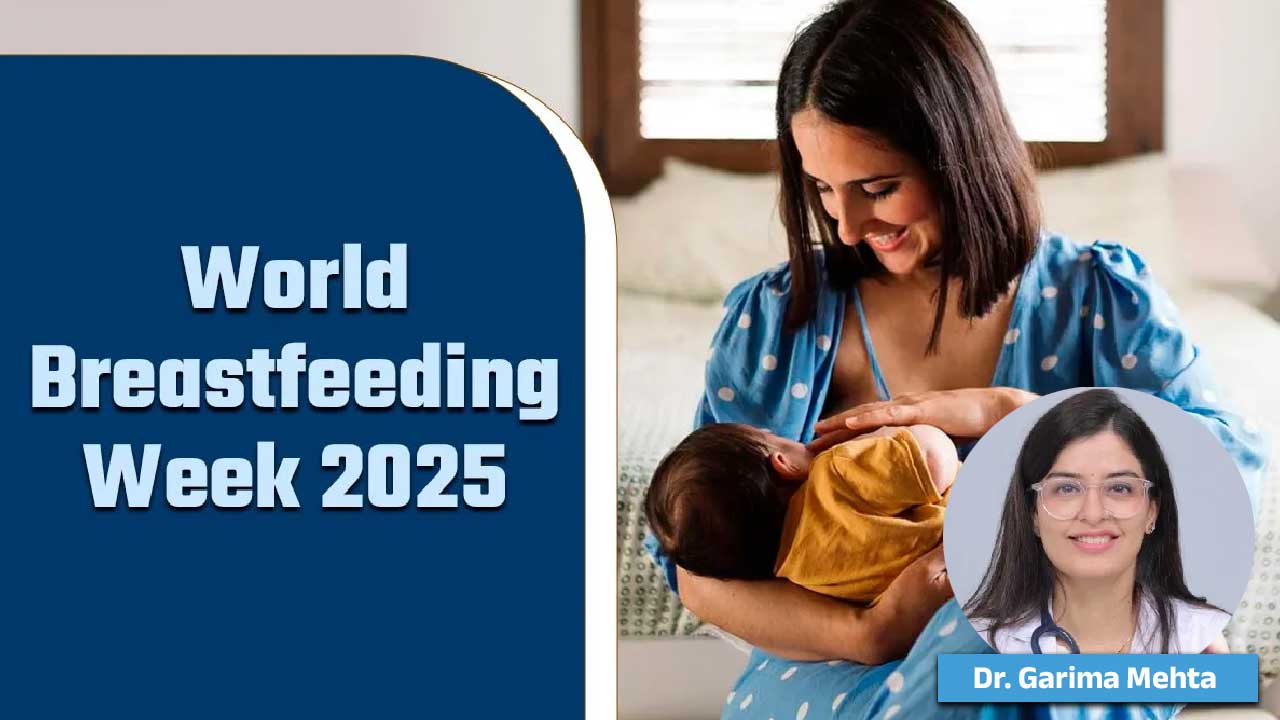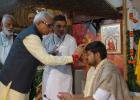- Charcha Patra
- World Breastfeeding Week 2025: Prioritize Breastfeeding, Build Sustainable Support for India’s Mothe...
World Breastfeeding Week 2025: Prioritize Breastfeeding, Build Sustainable Support for India’s Mothers

This year’s World Breastfeeding Week, observed from August 1-7, focuses on the theme, "Prioritize Breastfeeding: Create Sustainable Support Systems." The theme calls on nations like India to do more than just promote breastfeeding; it urges them to build lasting support structures across healthcare, communities, and workplaces.
The theme, promoted by the World Alliance for Breastfeeding Action (WABA), highlights breastfeeding's dual importance: it nourishes infants while reducing the environmental burden, making it a powerful contributor to both public health and planetary sustainability.
Why Breastfeeding Matters in India
India has a significant gap in breastfeeding practices. According to NFHS-5 data, only 41.8% of infants under six months are exclusively breastfed, and just 42.6% receive breast milk within the first hour of birth. These figures highlight the urgent need for a system-wide approach, from hospitals to homes, to help mothers start and continue breastfeeding. Breastfeeding is a low-cost, natural way to protect infants from malnutrition and infections while also benefiting the mother’s health.

The Sustainability Connection
Breastfeeding is environmentally friendly, requiring no packaging, transportation, or fuel. Formula feeding, in contrast, creates waste, increases carbon emissions, and uses up land and water resources. Both UNICEF and WHO agree that investing in breastfeeding is a climate-smart solution with long-term environmental and economic benefits.
Gaps in India's Support Systems
While India has progressive policies, such as the Maternity Benefit (Amendment) Act of 2017 and the POSHAN Abhiyaan program, their implementation is often inconsistent. This is especially true for the more than 90% of working women in the informal sector who often lack access to maternity leave, healthcare, and breastfeeding-friendly environments.

What India Needs
To build sustainable support systems, India should focus on:
1. Healthcare: All hospitals and Primary Health Centers (PHCs) should offer skilled lactation counseling and postnatal care.
2. Community: Local health and community workers should be involved in breastfeeding advocacy.
3. Workplaces: Companies should introduce mandatory breastfeeding breaks, lactation rooms, and on-site crèches.
4. Family Support: Family members and partners must be educated on how to support a mother’s breastfeeding journey.
5. Public Awareness: Campaigns are needed to normalize breastfeeding, especially in urban areas and media.
This World Breastfeeding Week 2025, let's renew our commitment to prioritizing breastfeeding and creating a sustainable support system for India’s mothers and children.
About The Author

Dr. Garima Mehta, M.D. (Pediatrics), is a renowned Pediatric Critical Care and Neonatal Specialist with a deep commitment to child health and development. As a Certified Lactation Consultant (BPNI), she brings a compassionate and evidence-based approach to supporting new mothers and infants. Currently serving as Senior Consultant at Kilkaari Children Hospital & Lactation Center in Surat, Dr. Mehta is dedicated to providing comprehensive pediatric care, especially in high-risk and neonatal cases.


.jpg)











-copy.jpg)


.jpg)




